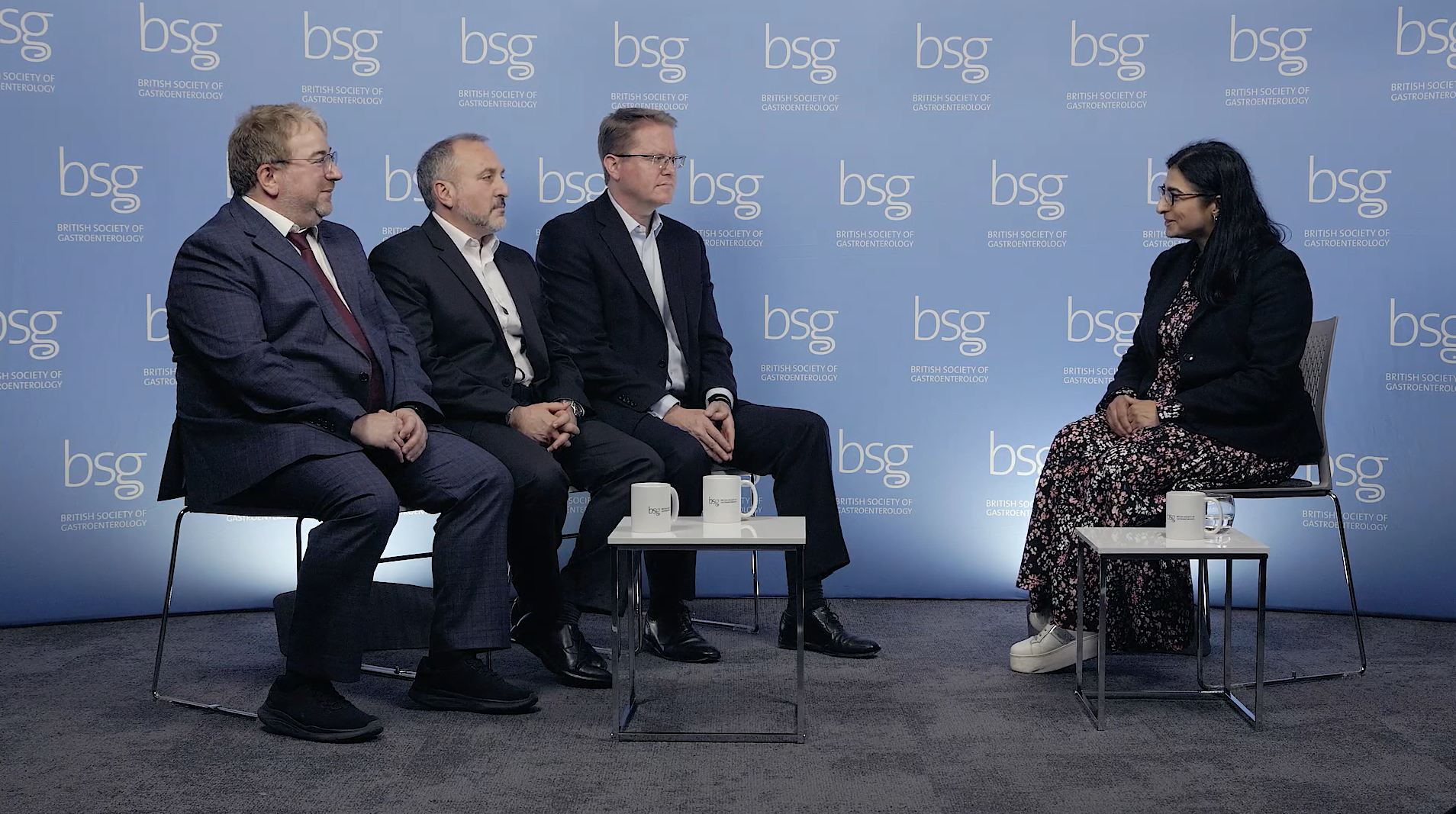This interview covers the following key areas of the 2025 published guidelines; BSG Guidelines on the management of inflammatory bowel disease in adults and BSG guidelines on colorectal surveillance in inflammatory bowel disease.
Interviewer: Dr Shahida Din, IBD Section Chair
Interviewees (Guideline Authors): Prof James East, Prof Morris Gordon, and Prof Gordon Moran
James East, IBD Surveillance Guidelines
- Concordance with surveillance intervals is key to avoiding IBD-related colorectal cancer. It is much more important than dye spray or virtual chromoendoscopy.
- It is the responsibility of the whole IBD team: clinicians; specialist IBD nurses; endoscopy administrators; medical secretaries, to support patients in achieving concordance.
- Not all IBD-related colorectal cancers are preventable with surveillance, but finding an early cancer that can be cured surgically is still a surveillance success.
- These guidelines are an update of the 2019 guidelines and are aimed to inform on efficacy and safety of all therapies used for induction and maintenance of remission in Crohn’s disease and ulcerative colitis.
- The guidelines are not meant to inform on cost-effectiveness nor provide a hierarchy of sequence of treatments to be used in IBD.
- The major departure from the previous guideline apart from endorsing newer therapies since then, are a strong support to a top-down treatment strategy in the treatment of Crohn’s disease and a suggestion to continue advanced therapies beyond one year even if the patient is in clinical remission.
- Drugs that have a trivial effect of efficacy are not suggested to be routinely used, though if patients are already on these drugs and doing well, we suggest shared decision making, between the patient and clinician and not routine treatment cessation.
References
